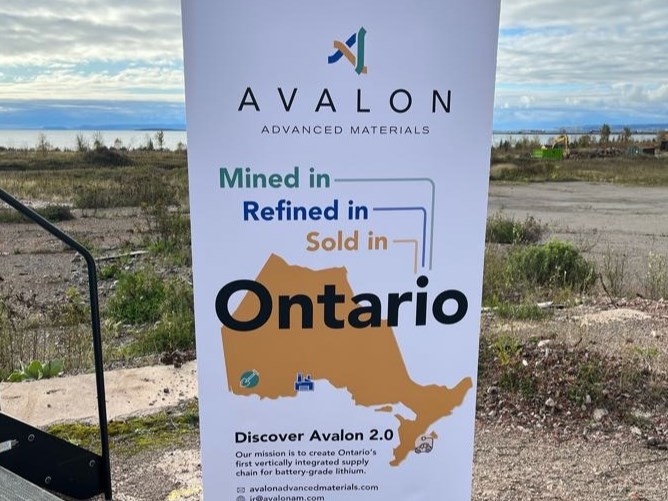A Toronto-based company is eager to begin production of lithium-hydroxide at a facility on Lake Superior in 2028.
On Thursday, the leadership group with Avalon Advanced Materials Inc. spoke with shareholders about their future plans, which also includes the Separation Rapids project north of Kenora.
Avalon president Zeeshan Syed told investors one advantage of being in Thunder Bay is the ability to leverage Confederation College and Lakehead University for workers.
“One of the things that China has done very well at is [recruiting] trained engineers, chemical engineers and [others] to work in the lithium, nickel, and cobalt sector. Quite frankly, Canada and the western economies [are] woefully inadequate to meet the challenge at hand,” Syed said on the call. “We have initiated discussions with [both] institutions to make sure we've got a pipeline of students in that workforce of the future.”
Syed said the goal is to eventually be able to produce 150,000 tons of lithium hydroxide from the Strathcona Avenue property. Lithium hydroxide is a common component in electric vehicle and lithium-ion batteries.
The company showed federal representatives around the site of the former Abitibi pulp and paper mill property, which will be renamed the Rockefeller Industrial Park, in October.
Previously Smurfit-Stone also operated at the site, but shuttered the mill in 2003, and the plant was subsequently demolished.
The next step for the company is to commission a feasibility study, which could have a price tag of $5 million, leaders said.
The company has estimated the facility will cost just over $1.1 billion to build and will create approximately 500 jobs both in Thunder Bay and in Kenora.
There are no lithium processing facilities in Ontario, forcing most of the leading lithium exploration companies in the northwest to search for funding for both mine development and the processing plant.
